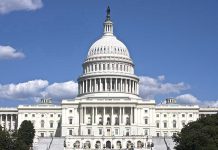
Americans may soon witness the first military execution in over six decades, a dramatic move that would force the nation to confront its deepest convictions about justice, vengeance, and the very soul of its armed forces.
Story Snapshot
- Defense Secretary Pete Hegseth is seeking approval for the execution of Nidal Hasan, the Fort Hood shooter
- This would be the first military execution since 1961, reviving a rarely used power in the U.S. military justice system
- The case reignites fierce debates about military discipline, the death penalty, and the legacy of terrorism on American soil
- Presidential approval is required for the execution to proceed, placing the decision at the highest level of government
The Unprecedented Request: Hegseth Pushes for Execution
Defense Secretary Pete Hegseth has called for the execution of former Army Maj. Nidal Hasan, who killed 13 people at Fort Hood in 2009. Hegseth’s request is not just unusual—it is almost without precedent. No military execution has occurred since 1961, when Army Private John Bennett was hanged for rape and attempted murder. The military justice system allows capital punishment, but the threshold for its use is so high that it has become a dormant relic, stirring only in the nation’s most exceptional moments of outrage.
The Fort Hood massacre, one of the deadliest mass shootings on a U.S. military base, left a scar on the American psyche. Hasan’s actions were labeled by many as an act of terrorism, a betrayal from within the very ranks sworn to protect the nation. For years, Hasan has sat on death row, his fate hanging in bureaucratic limbo. Hegseth’s move to seek presidential approval for execution signals a willingness to revive the most severe penalty in the military’s arsenal, testing the boundaries of both legal precedent and public sentiment.
The Gravity of Military Capital Punishment
Military executions are rare by design. The Uniform Code of Military Justice (UCMJ) sets an almost insurmountable bar for capital punishment. Even after a death sentence, a labyrinth of appeals and mandatory reviews shields the condemned from the gallows. The last time the federal government executed a military prisoner, John F. Kennedy was president and the Cold War was at its height. Since then, the military’s death penalty has existed more as a symbol than a reality—until now.
Hegseth’s bid to break this silence is a statement about the gravity of Hasan’s crime and the message he wants to send: that betrayal and murder within the ranks will meet the ultimate punishment. Yet, this move also reopens the ethical and practical debates that have kept military executions off the table for so long. Would an execution serve as justice or merely as retribution? Does it deter future crimes, or does it risk making a martyr of a convicted terrorist?
War Secretary Pete Hegseth will ask President Donald Trump to approve the execution of Nidal Hasan, the Fort Hood shooter who killed 14 people and injured dozens more in 2009.
— Washington Examiner (@dcexaminer) September 25, 2025
Presidential Decision: The Burden of Final Authority
The military justice system gives the president the final say in any execution. This safeguard reflects the profound moral weight of the decision. For the president, signing off on Hasan’s death would mean personally endorsing the first military execution in a generation—a step that would be scrutinized not just at home, but by the world.
Presidents have historically hesitated to wield this power, conscious of both domestic backlash and international human rights pressures. The decision is not just about Hasan. It is about what kind of nation America chooses to be in the face of unspeakable violence. Hegseth’s request puts the pressure squarely on the Oval Office, making clear that this is about more than punishment; it’s about defining the ethos of American justice.
The National Debate: Justice, Terrorism, and the Limits of Vengeance
Hasan’s case is not merely a legal matter—it is a national reckoning. Supporters of execution argue that anything less would dishonor the victims and undermine military discipline. Critics warn that reviving the death penalty after more than sixty years risks sending the wrong message about American values, especially in an era of heightened scrutiny over the use of capital punishment.
The execution debate also collides with the politics of terrorism. Hasan’s attack, carried out after years of radicalization, was treated by many as an act of war against fellow soldiers. Granting him the “martyrdom” he reportedly sought could play into extremist narratives, complicating the ethical landscape even further. As the president weighs Hegseth’s request, the country must grapple with whether justice is best served by taking a life—or by refusing to do so, even in the face of overwhelming provocation.
Sources:


















